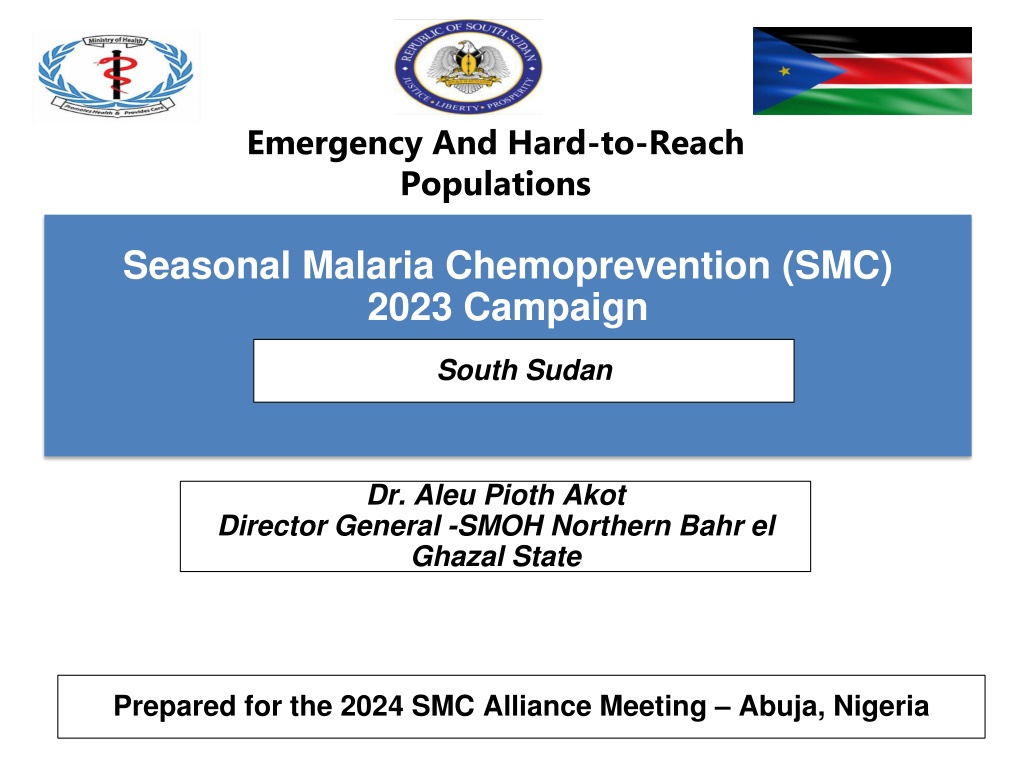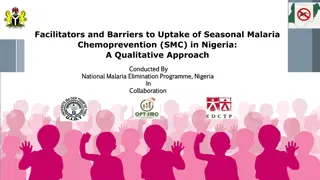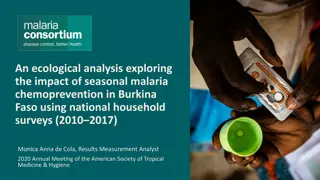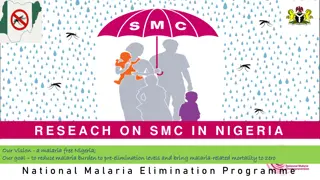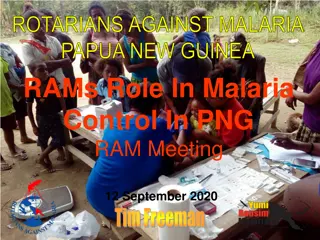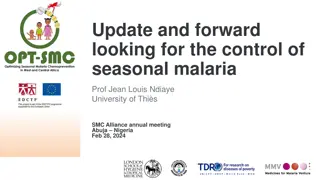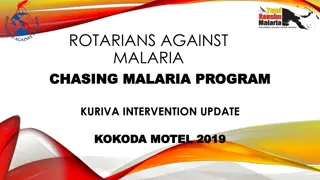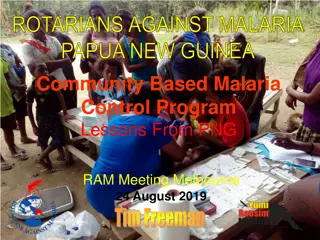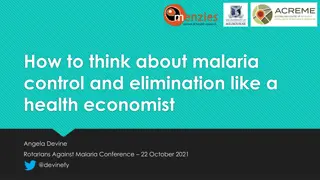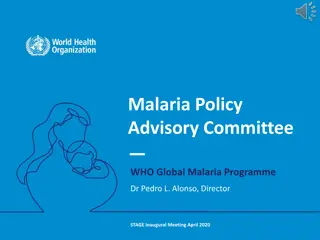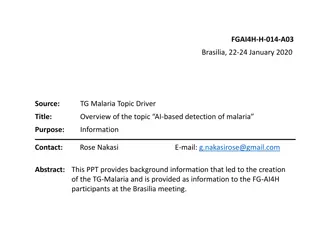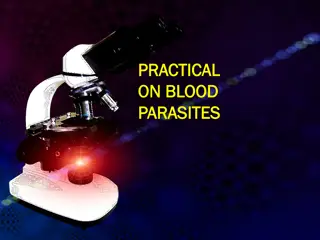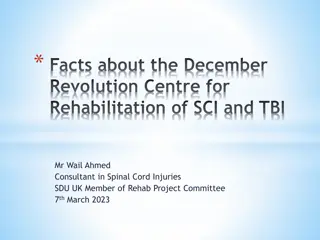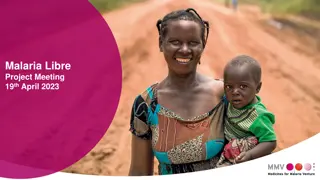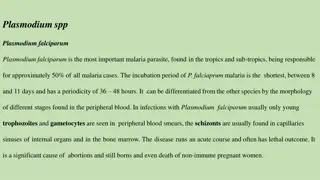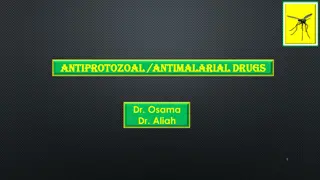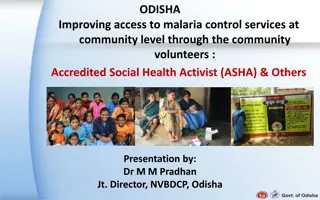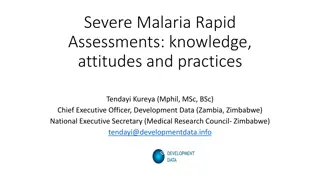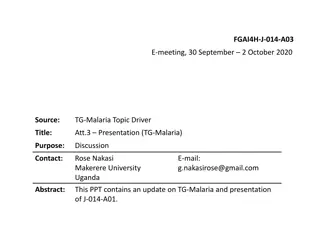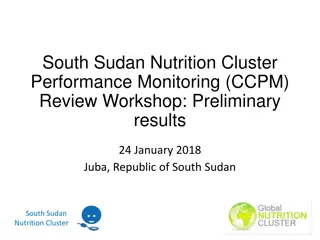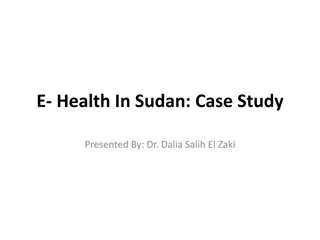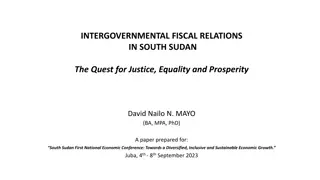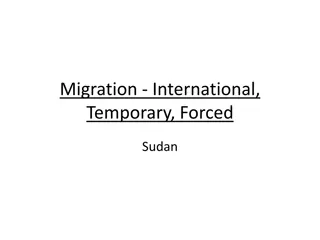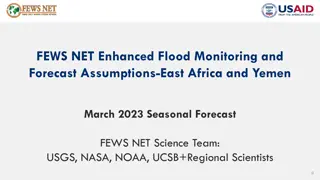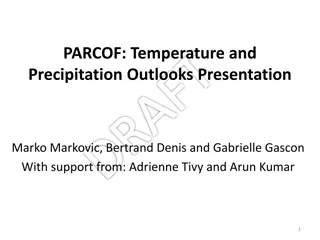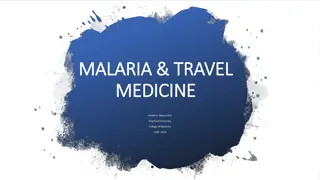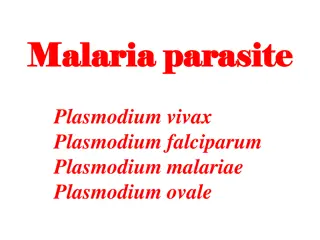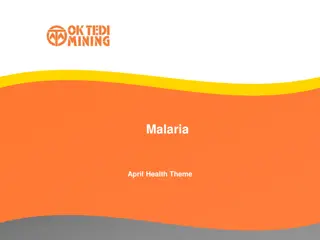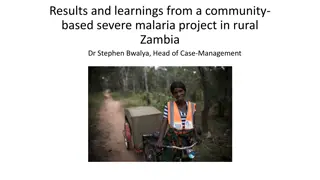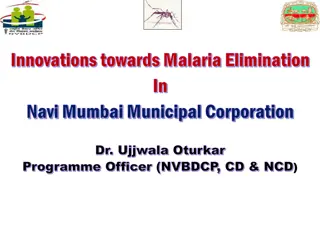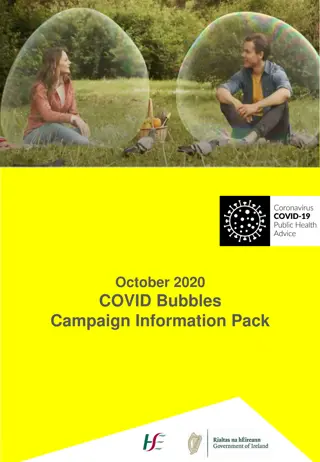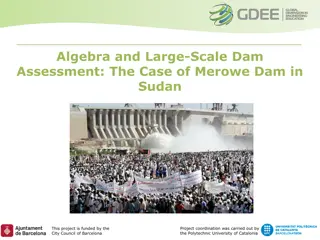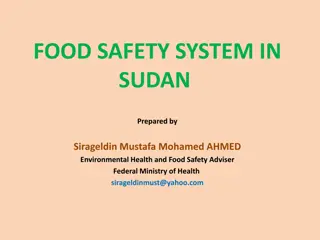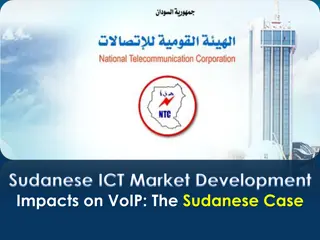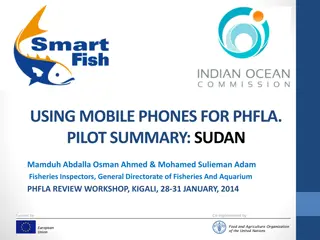Seasonal Malaria Chemoprevention Campaign 2023 in South Sudan
Dr. Aleu Pioth Akot led the successful Seasonal Malaria Chemoprevention (SMC) campaign in Northern Bahr el Ghazal State, South Sudan in 2023. The focus was on reducing malaria morbidity and mortality among high-risk children aged 3-59 months. Key lessons learned included implementing a door-to-door SPAQ administration approach with community involvement and achieving significant reductions in malaria incidences. Plans for the 2024 campaign involve targeting 67,000 children and implementing 5 cycles starting in June 2024.
Download Presentation

Please find below an Image/Link to download the presentation.
The content on the website is provided AS IS for your information and personal use only. It may not be sold, licensed, or shared on other websites without obtaining consent from the author. Download presentation by click this link. If you encounter any issues during the download, it is possible that the publisher has removed the file from their server.
E N D
Presentation Transcript
Emergency And Hard-to-Reach Populations Seasonal Malaria Chemoprevention (SMC) 2023 Campaign South Sudan Dr. Aleu Pioth Akot Director General -SMOH Northern Bahr el Ghazal State Prepared for the 2024 SMC Alliance Meeting Abuja, Nigeria
Summary information for 2023 and plans for 2024 campaigns 2023 (Achieved) 2024 (Plan) 10thAugust to 3rdNov-203 24 June to 14 Oct- 2024 Start and end dates 4 cycles 5 cycles Number of cycles 2 2 Number of counties targeted 67,563 67,000 (starts June 2024) Number of children covered 3-59 months 3-59 months Age range covered 100% 100% Coverage (% targeted children receiving all cycles) Yes No Any drug resistance testing or efficacy studies performed? (Y/N) Unmet need for SMC from counties outside what was targeted Any gap
Country map showing SMC implementing Counties
Focus Initial Implemntation experience
Key Lesson learnt in 2023: Focus initial implemntation What was a problem you were trying to solve? Reduce malaria infection morbidity and mortality among children aged 3-59 months who are in high risk in rainy season through Improved access to SMC medicine Mitigate economic shocks faced by households exacerbated by high out of pocket costs (for treating malaria).
Key lessons learnt in 2023: Focus initial implementation What was the design of the implementation? Door to door approach for directly observed SPAQ administration Community-led approach for SPAQ distribution and administration Behavioral change communication Local ownership through local actors leading engagements and accountability efforts
Key lessons learnt in 2023: Focus initial implementation What was impact of SMC? SMC was significantly associated with 82% lower odds of caregiver-reported RDT-confirmed malaria (SMC effectiveness study South Sudan 2024) 40% reduction in malaria incidences in Aweil South County between 2022 and 2023(DHIS2) 100% administrative coverage for 2023 Round [67,563/63,133] High demand of SMC from community No adverse drug effects were registered
Key lessons learnt in 2023: Focus initial implementation What challenges did you face? Due to limited resources unmet need for SMC from communities not targeted was not met Prolonged flood limited access to beneficiaries for SPAQ Low capacity of volunteers affected quality of services provided [Some couldn t appropriately read and write] Low interest by caregivers affected coverage due to unmet high expectations [they wanted to directly benefit from the intervention]
Key lessons learnt in 2023: Focus initial implementation Lessons Learned Local actors [Religious & cultural] were instrumental in attaining SMC acceptance and uptake their opinions are WEIGHTY After seeing the effectiveness of SMC, some caregivers would enroll children 60 months plus in anticipation they would be protected from malaria. Some caregivers didn t see the need of using mosquito after their children received SPAQ thus a call to orient them on comprehensive mitigation of malaria Upon experiencing the effectiveness of SMC, government stakeholders advocated for the scaleup to non targeted locations
Key lessons learnt in 2023: Focus initial implementation What would you do differently in the future? Co-opt health facilities to share SMC information during health education sessions and during outreaches Employ sustainable peer-led capacity building efforts led by BHWs Considerations for a caregiver-led approach for SPAQ administration could be more sustainable. South Sudan has highest child, infant and maternal mortality ; and lowest poverty index in the world So There is high need / demand of SMC and expansion in all high burden states
